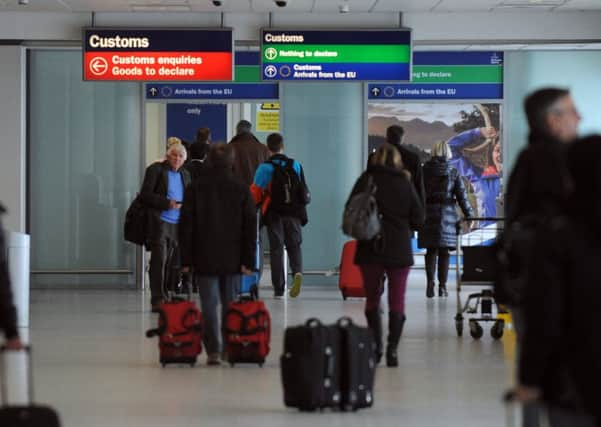Ian Robinson: UK has little to fear from a Scottish visa


I might expect that line in a London seminar but it surprised me in Aberdeen. There’s a myth that regional visa systems don’t work, or at least couldn’t in the UK. A long list of practical and legal issues can be put forward against the idea but the truth is that consideration of a separate Scottish visa is not without merit.
The Canadians and Australians have regional immigration policies and they work well. Scotland might present different challenges, but there is no reason why they couldn’t be overcome.
Advertisement
Hide AdAdvertisement
Hide AdSo, why would you want a Scottish visa in the first place? It’s understood that Scotland has demographic challenges, with the House of Commons Scottish Affairs Committee identifying issues such as slower population growth, an ageing population and lower life expectancy. According to the Scottish Government, Scotland’s population is ageing more acutely than that of other parts of the UK. The number of people at state pension age will increase by 25 per cent by 2041, but the working age population is expected to grow by a mere 1 per cent
Immigration is only one solution, but it could be an effective one. If you know the country needs certain skills, why not bring migrants with these skills and, moreover, why not construct policy that brings the right people? Creating a policy that targets skilled workers, entrepreneurs and people who can fill lower skilled labour shortages and would help businesses and benefit the economy.
A policy created specifically for Scotland could lower the requirements to get to and stay in Scotland, loosening the salary requirements north of the border – that wouldn’t mean bringing in cheap labour, but setting salary requirements against wages in Scotland rather than the UK as a whole, often distorted by higher London salaries. The policy could also give students more time to find work after graduation, allowing Scotland the opportunity to retain the talent educated here.
It’s at this point the question gets asked: that’s all great, but would a regional visa mean Scotland becomes a back door to entering other parts of the UK? Potentially, but I don’t see a big risk here, not least because the law can adequately protect against those who’s intent is to “abscond”.
Work visas already tie people to their work location. Currently it’s a fairly passive policy – an employer tells the Home Office if a worker moves, then they’re immediately rubber-stamped. The government could easily make this more robust by adding criteria and having the Home Office make an assessment.
This policy means that workers with Scottish visas can move to London or other areas in the UK, but only if they meet stringent national criteria. Sanctions already exist for employers and employees who choose not to comply. The employer can face a £20,000 fine and both parties can face criminal charges.
The government could also leverage rules to ensure that people don’t just move without permission. Right now, foreign workers can only rent a flat if they have a visa. Under regional immigration, the government could prevent a Scottish visa holder from renting in England.
This all assumes there would be a problem, but there might not be. After Brexit, Europeans will probably be able to enter as tourists without a visa and Americans, Australians and many others already can. There are easier ways to get to every part of the UK than deliberately applying for the wrong visa. Moreover, there are ways the Home Office can sanction people who choose to try and circumvent immigration controls.
Advertisement
Hide AdAdvertisement
Hide AdI’m not claiming that this thinking entirely removes the risk of people absconding by heading south. Frankly, that risk exists, in the same way that there is risk with any policy. Ultimately, it’s a choice for politicians – does the risk of absconding outweigh the benefits to Scotland’s labour market and wider population? Right now, the Westminster and Holyrood governments have opposing views on that.
Ian Robinson is a partner at Fragomen, the leading international immigration law firm